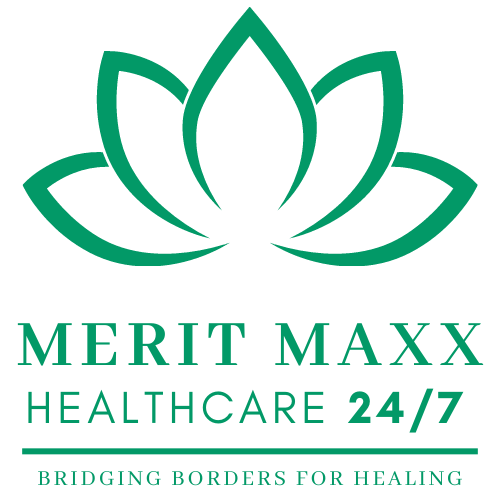
BOOST YOUR PRACTICE’S EFFICIENCY!
Implement Seamless System Integration
Streamline your healthcare operations by integrating all your systems—EHRs, billing, telehealth, and more—into one unified platform, improving workflow and enhancing patient care
System Integration
Unifying Healthcare Operations for Seamless Performance
At Merit Maxx Healthcare 24/7, we provide comprehensive System Integration solutions that ensure all your healthcare technology works together seamlessly. From Electronic Health Records (EHR) to telehealth services and practice management software, we integrate your systems for improved efficiency, data accuracy, and operational performance.
STREAMLINE YOUR SYSTEMS FOR OPTIMAL PERFORMANCE
Discover how our system integration solutions can unify your healthcare technology, ensuring smooth workflows, better data management, and enhanced patient care.
Difference Between System Integration and Standalone Systems
While standalone systems serve specific functions within a healthcare practice, System Integration connects these systems to work in harmony. Integration allows different platforms—such as billing software, patient portals, and EHRs—to share data seamlessly, reducing errors, improving communication, and enhancing overall efficiency.
The Role of System Integration in Healthcare
System integration plays a vital role in healthcare by connecting disparate technologies into a unified, cohesive infrastructure. Integrated systems ensure that data flows smoothly between different departments, reducing the risk of errors, duplications, and delays. This allows for better patient care coordination, streamlined billing processes, and accurate reporting across the board.
By integrating your systems, Merit Maxx Healthcare 24/7 ensures that your practice can handle complex workflows and operational demands, all while improving overall service delivery.
Growing Demand for System Integration Solutions
The demand for system integration is growing as healthcare providers recognize the benefits of a unified infrastructure. Key drivers include:
- The increasing complexity of healthcare operations requiring multiple software solutions.
- The need for accurate and timely data sharing between different platforms.
- Rising patient expectations for streamlined services and better communication.
- The push toward digital transformation and interoperability in healthcare systems.
With Merit Maxx Healthcare 24/7, you can easily integrate your systems, ensuring that your practice is optimized for efficiency, accuracy, and better patient care.
System Integration Features and Benefits
One of the most critical aspects of healthcare system integration is the ability to facilitate seamless data sharing across different platforms, including Electronic Health Records (EHRs), billing systems, telehealth platforms, and patient portals. By integrating these systems, data can be transferred smoothly between departments, ensuring accuracy and eliminating the need for redundant data entry. This reduces human error, minimizes administrative workload, and enhances the overall efficiency of data management. With real-time data sharing, healthcare providers have instant access to up-to-date patient information, enabling faster and more informed decision-making, which ultimately leads to better patient outcomes.
System integration eliminates bottlenecks and inefficiencies in healthcare workflows by connecting all your technology into a cohesive infrastructure. Instead of manually transferring data between different systems or departments, integrated workflows ensure that information flows automatically, reducing delays and improving overall process speed. For example, when an EHR system is integrated with billing software, patient details can be automatically updated in both systems, streamlining administrative tasks and minimizing errors. This improved efficiency allows healthcare providers to focus more on patient care rather than managing disparate systems, resulting in more productive and cohesive operations across the entire practice
One of the key advantages of system integration is centralized system management, which allows healthcare organizations to oversee and control all their healthcare technologies from a single platform. Rather than navigating multiple systems for different tasks—such as scheduling, billing, and patient care management—integrated systems bring everything together in one interface. This reduces complexity for staff, simplifies training, and enables better operational oversight. Healthcare administrators can monitor the performance of different systems, track workflows, and quickly address any issues, all from one centralized dashboard. This level of integration not only saves time but also helps in optimizing resource allocation and ensuring that all departments are functioning at their best.
The ultimate goal of system integration in healthcare is to improve patient care by providing healthcare providers with seamless access to comprehensive and accurate patient data. With integrated systems, healthcare providers can instantly retrieve patient information—such as medical history, lab results, treatment plans, and billing information—across all departments involved in the patient’s care. This ensures continuity of care, reduces the risk of errors (such as prescribing the wrong medication due to incomplete data), and speeds up treatment processes. Patients also benefit from better communication between departments, leading to more coordinated and effective care, whether it’s during an in-person visit or a telehealth consultation.
In today’s healthcare environment, compliance with regulations such as HIPAA (Health Insurance Portability and Accountability Act) and GDPR (General Data Protection Regulation) is critical. Our system integration solutions are designed to ensure that all systems remain compliant with these regulations, helping your practice avoid legal penalties and maintain patient trust. We implement secure data transfer protocols, encryption, and access control measures to protect sensitive patient information from unauthorized access or data breaches. Integrated systems make it easier to track who has access to patient data and ensure that only authorized personnel can view or modify sensitive information. This not only improves security but also builds confidence in your healthcare organization’s ability to manage patient data responsibly.
Here are industry experts who can help you
System Integration Implementation Process
Assessment & Planning
We conduct a thorough assessment of your current systems and workflows to understand your specific integration needs and challenges.
Seamless Integration
Our expert team integrates your systems without disrupting your operations, ensuring a smooth transition to a unified platform.
Ongoing Support and Optimization
After the integration, we provide continuous monitoring and support to ensure your systems run efficiently and remain optimized for your healthcare practice’s needs.
t.
Contact Us Today!
Our Team will Reach out to you within 24 hours of your request.
